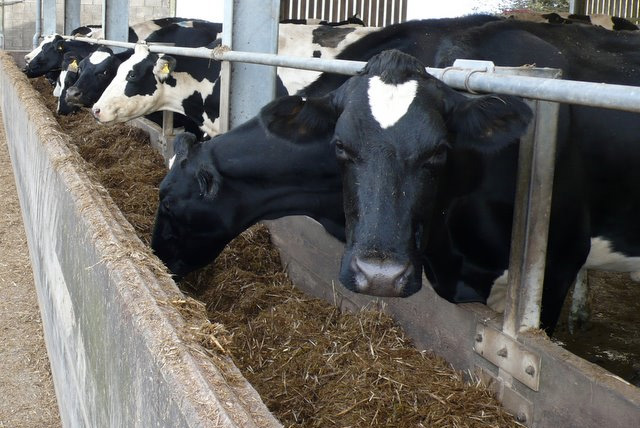
Dorset dairy farmer Paul Gould is facing the prospect of losing nearly a quarter of his closed dairy herd after the animals reacted positively at his latest routine bovine TB test.
Mr Gould said: “I’ve had 36 reactors, including 31 of my in-calf heifer replacements which were due to calve in this year. Let’s be clear about this, this means that pregnant cows will be sent for slaughter.
“Our last TB test was last June and we were completely clear. We’re a small family farm with 160 British Friesian cows. We’ve been a closed herd for 60 years, which means that all the cattle were born and bred on the farm and I don’t want to compromise that by bringing any animals in. We have badger setts on the farm and as far as I’m concerned there’s only one source of infection that this could have come from.
“Losing all these cows in one go is going to have a serious impact on the business. It means we’ll have no replacements at all this year and we’ll lose nearly a quarter of the herd. It will probably take us three years or more just to get back to where we are now. It’s devastating and we don’t know what our next TB test in 60 days will bring.”
32,620 cattle were slaughtered in Great Britain due to bovine TB in 2013.
This equates to almost 90 cattle being killed each day as a result of the disease.
The figures showed that the incidence rate – i.e. the proportion of previously TB-free cattle herds found to be infected with new incidences of the disease – was 4.5%. This means the rate has been at an unacceptably high level of above 4% for a decade and shows the steady toll of bovine TB on British cattle herds.
NFU President Meurig Raymond said: “The terrible situation Paul finds himself in reinforces the need for action to be taken on all fronts to tackle bovine TB. He has done everything he possibly can to stop this disease infecting his herd and yet is still facing losing nearly a quarter of his cows because of the infected badgers living in or around the farm.
“While we’re confident that the pilot culls will deliver a reduction in bovine TB in Somerset and Gloucestershire, farmers in other parts of the country where the disease is rife like Dorset face the despair of continually fighting a losing battle to control it without any means of preventing badgers continually reinfecting their cattle.
“There is little point in increasing regulations on farmers when the disease isn’t being tackled in wildlife. Until we do that reinfection will continue to occur and farmers like Paul will be powerless to protect their businesses. Controlling the spread of the disease is absolutely essential and culling badgers where bovine TB is endemic must play a role in any strategy to deal it.
“The government’s TB eradication strategy highlights the need to control the badger population in areas where TB is rife. The NFU will now be looking at the best ways of rolling out this policy to other areas where farms and farmers are having to deal with the scourge of TB on their farms.”
Farming Minister George Eustice said: “Our efforts to control bovine TB have kept outbreaks steady over the last ten years, but we are still nowhere near an acceptable position. Almost 90 cattle are being slaughtered each day due to bovine TB and we cannot allow that to continue.
Defra consulted on a 25-year TB eradication strategy last summer, which included proposals for disease surveillance, pre- and post-movement cattle testing, removal of cattle exposed to bTB and wildlife controls including culling and vaccination trials. The final strategy will be published this Spring.
It will also focus on the development of new techniques such as badger and cattle vaccines and new diagnostic tests that could one day offer new ways of tackling the disease.
